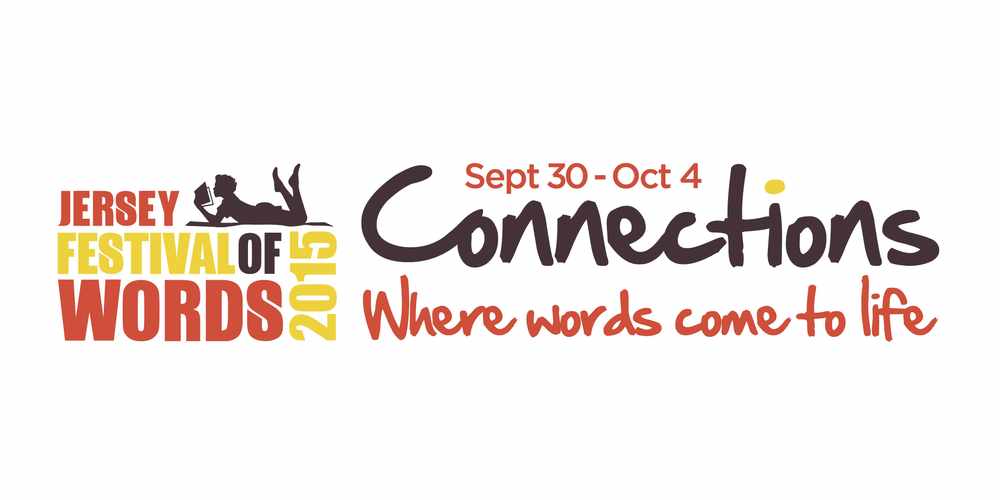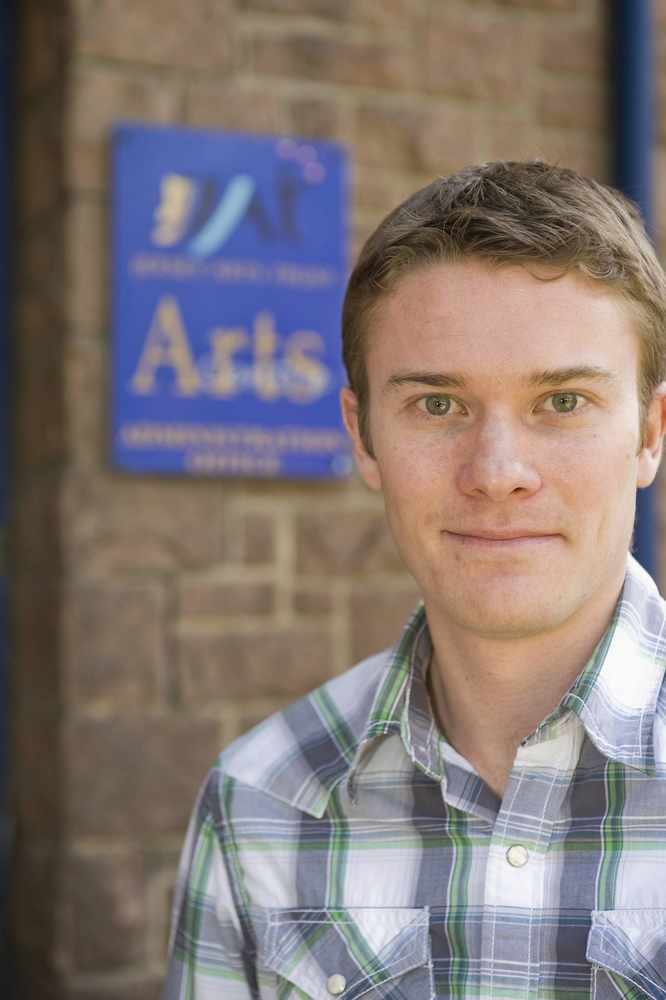Connections Festival guest Christian Foley is a master of spoken word poetry, which is created for performance.
POET, novelist, hip-hop MC, teacher, spoken word artist – Christian Foley’s CV is as eclectic and adventurous as his verse.
Having had his first published work at the age of 12, the former Victoria College student has gone on to establish himself as one of the most versatile young artists on the contemporary poetry scene.
‘When I was younger I’d say I wanted to be a poet and people would just laugh,’ he says. ‘But I always knew it was what I wanted to do.’
Still only 23, the London-based poet, who often performs under the stage name Muz, has been praised by the likes of Benjamin Zephaniah and MOBO-winning rapper Akala, while his prolific writing continues to evolve as he gradually moves away from the hip-hop influences which originally characterised his work.
‘Hip-hop was such a big influence when I first started out, because it reflected the music I was listening to at the time,’ he says. ‘But now I’m moving away from that to a more stripped-down style of poetry. It’s been a completely natural progression.’
Peninsula
Christian says: ‘I love the way it sounds.
‘I also see two words within it – pen and insular.
‘As a writer growing up in an Island, I pen insular poetry.
‘There is something powerful about the position of a peninsula, remaining there, but warping over time as the endless waves of the ocean break against it.’
Ever ambitious, Christian is also poet-in-residence at Cardinal Pole School in Hackney, where he teaches the skills of the trade to 12- to 15-year-olds.
‘Writing poetry has become a lot harder since I got a full-time job,’ he confesses. ‘Before, I’d just write as and when inspiration struck. Now, I have commissions to fulfil, deadlines to meet and students to teach.’
He also teaches at The Complete Works School, a charitable independent school in London. ‘I use poetry to facilitate education to children,’ he says. ‘I work with kids who have been excluded from school and young offenders who’ve had problems with gangs. It’s challenging but very rewarding.’
Although his teaching work is partly out of necessity (‘Poetry doesn’t always pay well,’ he laughs. ‘It’s a cliché, but one that’s sadly true’), it mostly stems from his desire to use his skills to educate others.
‘The Daily Mail ran a piece on The Complete Works School not long ago and totally twisted everything,’ he says. ‘They focused almost entirely on the children’s backgrounds, whereas really they should have been focusing on what the school achieves. We teach these children that they can succeed.’

More so than most, Christian knows the value of offering young people a helping hand, having received just that from the Jersey Arts Trust’s Tom Dingle during his own teenage years.
‘A local poet had been due to perform for National Literature Day on BBC Jersey, but he pulled out. A teacher at my school heard about this and contacted the radio station to say he had a pupil who does poetry. So I appeared on the radio and recited a piece I’d written for the occasion. Tom heard me performing and got in touch.’
The Arts Trust funded Christian on a trip to London to take part in the annual Farrago Poetry Slam, the capital’s longest-running slam poetry competition.
‘I came fifth out of the whole competition,’ he says, ‘and it was all made possible by the Arts Trust. Without them, I’d never have been able to do it. They’ve been a huge help over the years. Despite what people might expect, Jersey is incredibly rich when it comes to the arts. For such a small Island, there is always a surprising amount going on.’
Since then, Christian has gone from strength to strength, all the while remaining true to his conviction that authenticity should be maintained at all times.
‘Personally, I don’t think a poet should ever pander to an audience, or to anyone, when it comes to their artistic vision,’ he says, ‘but at the same time you have to have some compromise if you want to succeed. It’s a fine balance. I know some poets who are excellent but they just won’t play the game, whereas others aren’t so good yet they’re doing well because they know how to work the business.’
Certainly, spoken poetry is very much of the moment, having received particular attention on BBC Radio 1 Extra of late. However, as Christian says, such increased attention runs the risk of a backlash.
‘The worry is that, as spoken poetry is now seen as kind of a cool type of poetry, there will then come a time when it is seen as uncool, whereas it really shouldn’t be about what’s hip and what’s not. I don’t want this to be phase, I want it to be a career. But it’s hard when you have corporate companies with their own agenda.’

‘Christian is a precocious talent with what seems to be an innate affinity with the spoken word.
‘He has the most tremendous work ethic and attitude towards his craft, which enables him not only to do what he does but to make the most of every opportunity afforded to him and pass on key skills to others’
Tom Dingle of the Jersey Arts Trust
By way of example, Christian cites the fate of grime music. ‘When grime first appeared, it was incredibly raw and undiluted,’ he says. ‘It wasn’t made for or catered to the pop charts. Now, however, the subject matter of the songs has become bland and the energy has completely gone from the entire genre.’
Quite understandably, then, he is keen to avoid spoken poetry suffering a similar fate. One way to ensure this, he maintains, is for poets to avoid easy temptations.
‘I’ve been in situations where I’ve been talking to record label executives and they’ve wanted to push my material in a direction that I didn’t like, and I’ve turned them down. If you’re an artist, you should stick to what you’re passionate about.’
He now seems on the cusp of making a breakthrough, with high-profile performances over the summer at prestigious festivals such as Bestival and Latitude, as well as his debut at the Edinburgh Festival Fringe.
Before then, however, he will be participating in Connections: Jersey Festival of Words, during which he will be visiting primary schools to host performance poetry workshops.
‘My family moved to Jersey when I was seven and I had a great time growing up in the Island, so I always really look forward to returning.’
In the meantime, he will continue working on a multitude of projects, not least his current collaboration with poet Raymond Antrobus, the London-born poet who was shortlisted for London Poet Laureate. Together, they have penned a new book, Learning to be Unresolved.
‘The book focuses on our childhood upbringings and our experiences working in education,’ says Christian. ‘It’s one of a number of books I’ve been working on. I’ve nearly completed another called Mechanical Angels, for which I’ve also written an accompanying album and stage show. It’s loosely inspired by the true stories of children that I work with, and the realities of their circumstances. We’re aiming for a November release for both books.
‘It’s a fascinating time and I’m just excited to see where the art form is going to go next.’
Christian will appear at the Opera House Studio on Friday 2 October.






